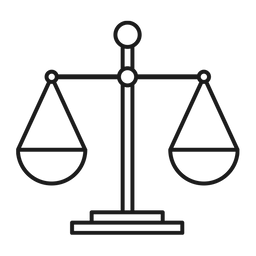Estate Planning - What is it?
Estate planning sounds like it only applies to the rich and famous. However, nothing is further from the truth! For example, suppose you own anything of value (home, car, bank account, family heirlooms, or maybe those old baseball cards in a shoebox in the attic). In that case, you want peace of mind that those assets are distributed in line with your wishes.
For a large majority of people, a simple estate plan will suffice in protecting the estate and make your wishes known when incapacitated or when you pass away. Unfortunately, many decisions must be made by those left behind when a person passes away. Estate planning relieves some of the stress felt by those left behind. Without a legal estate plan, the decision-making often leads to contention, frustration, and, unfortunately, fractured family relationships.
What does an estate plan do?
- Directs how your property and belongings will be distributed
- Allows you to name an executor to carry out plans and affairs after death
- Names guardians for your children under the age of 18
- Prepares for medical decisions if incapacitated
- Prepares for financial decisions if incapacitated
- Helps in avoiding higher probate court costs and fees
How does an estate plan allow an individual to take care of these matters? The estate plan may include powers of attorney (one specific to financial and one specific to medical/healthcare), a will, a living will, and a trust. Each of these documents has a particular purpose. What are they?
Last Will and Testament - This document overviews a person's final wishes. A last will and testament allows an individual to direct who will acquire their assets and belongings after passing away. It is imperative to keep this document up to date as this also determines who will become the guardians of the minor children of the deceased. Suppose a will is created and executed but not updated. In that case, confusion may ensue, causing more negative issues for those family members left behind. The law (courts) will decide how the estate is handled when there is no will.
Living Will - This document, also referred to as an "Advance Directive," directs the administration of medical care at the end of one's life. In addition, a living will gives guidance to loved ones about your medical care wishes. Items addressed in a living will include life support options, CPR administration, Do Not Resuscitate (DNR) orders, and organ donation wishes. This form is straightforward and simple to implement and can take effect immediately.
Healthcare Power of Attorney (POA) - This document often coincides with a living will. This Power of Attorney document allows you to name a trusted person to make healthcare decisions for you if you cannot.
Financial Power of Attorney (POA) - Much like the Healthcare POA, this document allows you to name a person to make financial decisions for you. There are multiple reasons why an individual may want to utilize a Financial POA, including illness, debilitation, or even being out of the country for an extended period of time. A durable POA would allow the named person to take care of finances (pay bills, write checks, etc.) while you are incapacitated or away. It is also important to note that this type of POA can be rescinded or canceled at any time.
Trust - A trust designates a 'trustee' to care for your assets. There are different legal options in setting up a trust depending on the needs of the individual. Avoiding probate and offering tax protection are two main benefits of utilizing a trust.
Not all of these items apply to each individual. Reach out to Lisa to discuss your situation and determine what best suits your needs.


